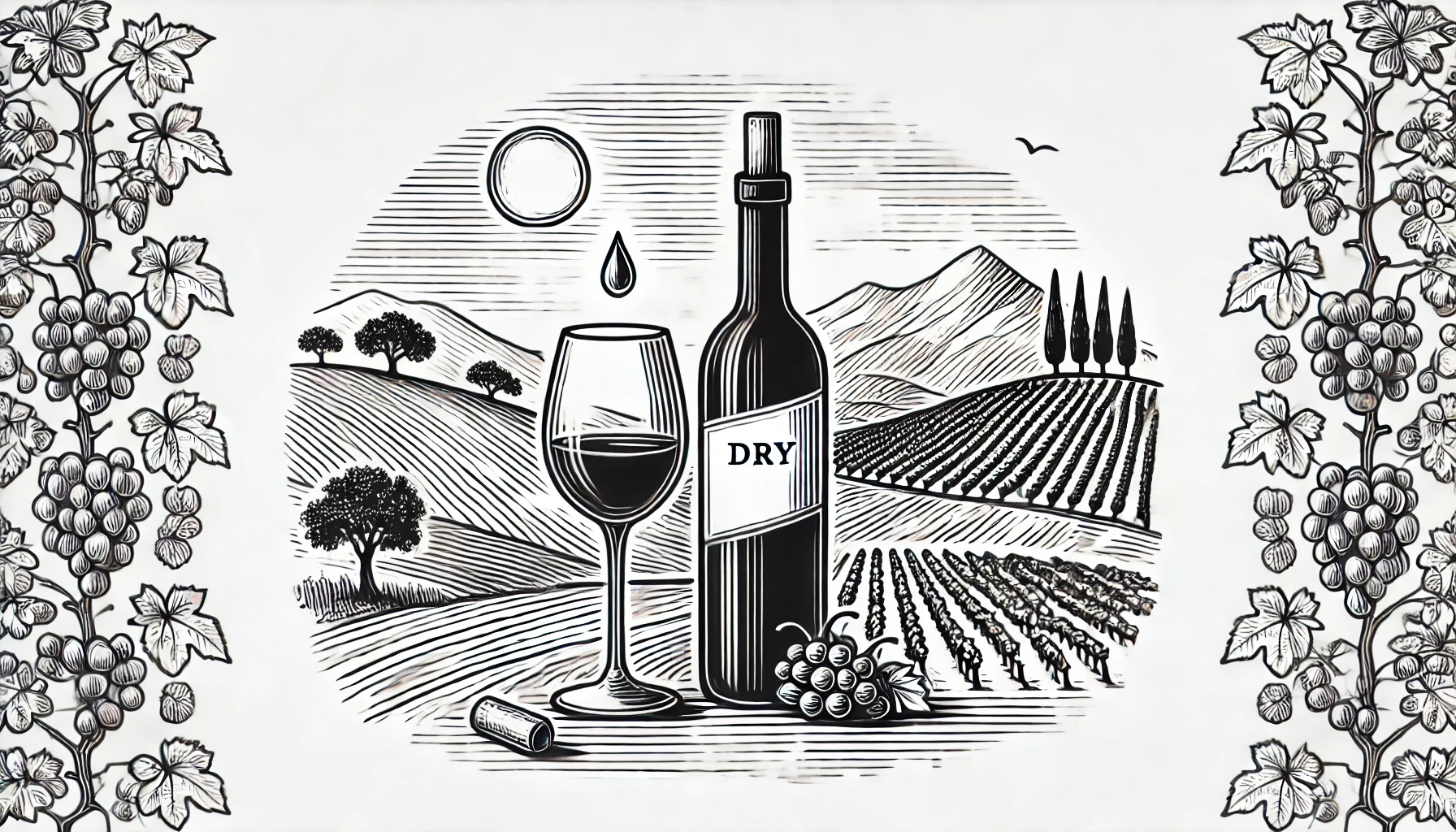
In wine terms, dry refers to a wine that has little to no residual sugar, meaning it doesn’t taste sweet. Wines become dry when almost all the sugar in the grape juice is converted into alcohol during fermentation. The sweetness in wine comes from the residual sugars that remain unfermented, so a “dry” wine will have very little, if any, sweetness left.
However, a dry wine does not mean it lacks flavor. In fact, they can be highly complex, offering a range of flavors and characteristics. Characteristics such as fruitiness, minerality, acidity, tannins, and body. The dryness simply refers to the absence of sweetness.
Many popular wines are dry, including red wines like Cabernet Sauvignon, Merlot, and Pinot Noir, and white wines like Sauvignon Blanc and Chardonnay. They are often preferred with food because their acidity and tannin structure pair well with a variety of dishes, without the sweetness that can sometimes overwhelm or clash with savory flavors.
In contrast to dry, you’ll find wines labeled as off-dry, which contain a small amount of residual sugar, and sweet wines, which retain more sugar, giving them a noticeably sweeter taste.
Curious about more wine terms and insights? Visit our Wine Wiki section and explore the basic wine terms for expert definitions and tips!